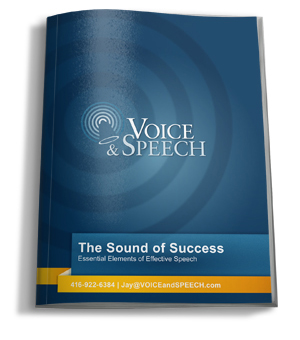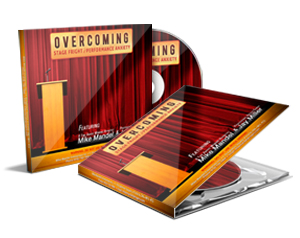Say, “Ah!”
Finding More Space
You wouldn’t believe how often I see people who don’t open their mouths enough, when they speak. Yeah, I can hear you saying, “Gimme a break! My grandmother could have come up with that.” But the consequences of this pervasive little habit are quite profound, including
- Weak voice- because less breath flows out when your mouth isn’t open far enough
- Mumbling- because speech sounds get distorted being squeezed through your teeth
- Speaking too fast- because your tongue can move really fast when your jaw isn’t moving
- Lacking credibility- Have you ever heard someone say, “He’s lying through his teeth!”
What can you do about it? The best approach would involve jaw relaxation exercises, and that’s what I recommend. But since most people just want to jump to the result, here’s what I suggest. Look in a mirror. Normally, you want to have at least one finger-width of space between your upper and lower teeth, on average. Some sounds will be even more open, some less. But on average, a finger-width.
For practice, you should go for two finger-widths. Very open. Use a mirror. The visual confirmation of openness is very important. You’ll be surprised at how easily your mouth starts to close up. If you’re not watching, you don’t even know it.
Start with single words, such as “spa,” “fad” and “high.” When that isn’t so hard, move to phrases, such as “father’s spa,” or “jazz lab,” or “fly high.” When you have the feel of that, try sentences, such as, “My father travels in style,” making sure you’ve got a least a thumb-width of space between your teeth, on the stressed vowel sounds. When sentences are easy, try reading paragraphs in front of a mirror. Remember, you’re looking for an average of one finger-width of space between your teeth. When that doesn’t feel so strange, try speaking with more openness in everyday conversations.
If you haven’t been speaking with a relaxed sense of openness, this might feel very strange and unnatural. You’re not used to allowing sounds to emerge from your body with so much space. That doesn’t mean it’s wrong; it’s just different. So play with it until the feeling is familiar, until it feels like you.
When you are able to speak in public with a relaxed sense of openness around your mouth and jaw, you will reap some significant benefits.
- Your voice will be stronger- more openness leads to more breath support
- Your articulation will be clearer- more openness encourages more precision
- You will speak at a relaxed pace- more openness means your jaw has to move a bit further, slowing you down
- You will appear strong, confident and credible- take my word for it
Those are all major elements of successful communication—and all have a connection to opening your mouth. You know I hate gimmicks, shortcuts and superficial techniques, but this is something that anyone can understand. And it’s not hard to practice. So open up!
 The Sound of Success
The Sound of SuccessEnroll in this FREE video mini course and discover a powerfully attractive voice.
 Your Confident Voice
Your Confident VoiceThis 145-minute mp3 download is a complete speaking voice course. The simple but amazingly effective program is on sale this month!
 Overcoming Stage Fright
and
Overcoming Stage Fright
andPerformance Anxiety
On this mp3 download, Jay Miller teams up with six-time award-winning hypnotist Dr. Mike Mandel to deliver the most comprehensive program available for reducing or eliminating stage fright.